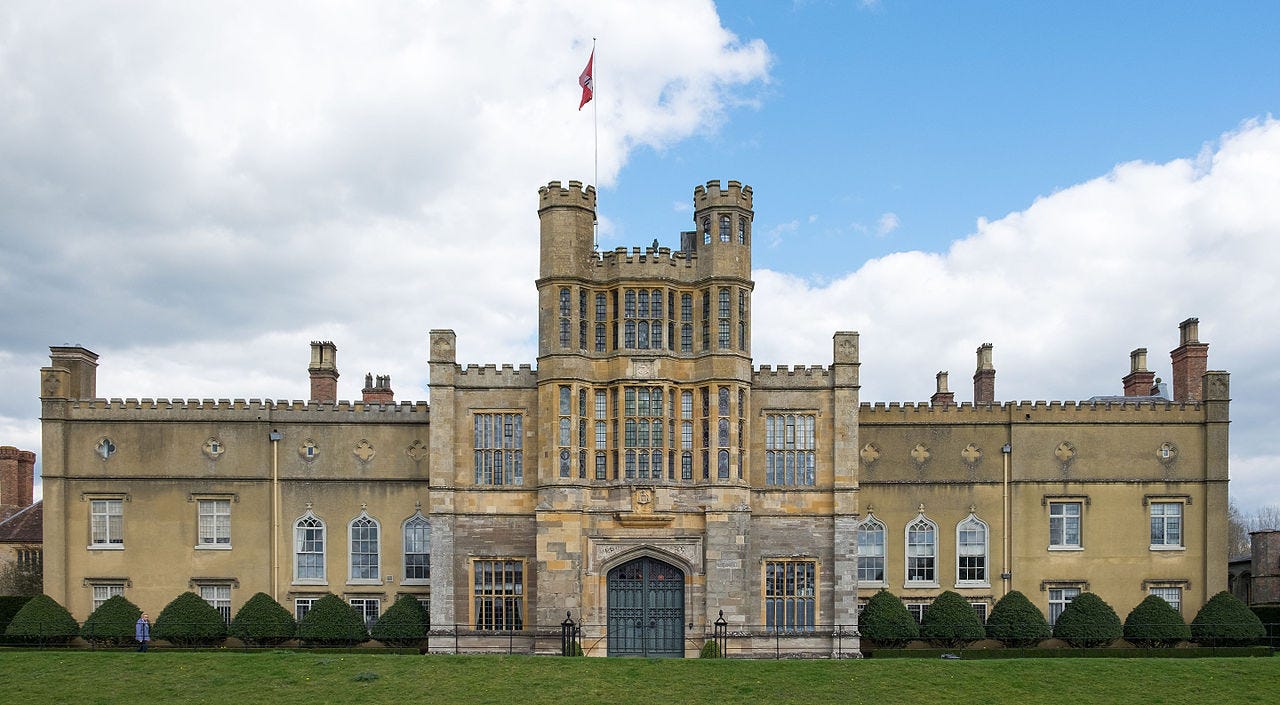Our Ancestors Were Oppressed for Their Faith, and Twice Attempted a Coup
Their descendants show us a better way
Remember, Remember / The Fifth of November / The Gunpowder treason and plot / I know of no reason / Why the Gunpowder treason / Should ever be forgot!
Made famous in the 2005 film V for Vendetta, these lines refer to an actual historical event in England: the 1605 Gunpowder Plot. The Gunpowder Plot was part of a conspiracy by a young band of radical Catholics to overthrow the Protestant government, after facing decades of religious persecution.
One of the key members of the conspiracy, Guy Fawkes, attempted to blow up the House of Lords at its opening session, with the intent to murder King James I and all the sitting members of Parliament. The plot failed when Guy Fawkes was captured in the process of setting up thirty-six barrels of gunpowder below the House of Lords. The capture of Fawkes became a national holiday in England, and now “Guy Fawkes Day” is celebrated every year on November 5th with bonfires and fireworks.
Our ancestors, the Throckmortons, were peripherally a part of the Gunpowder Plot. The main ringleader of the plot, Robert Catesby, was the son of Anne Throckmorton, and he brought other members of the extended Throckmorton family into the plot as well. After Guy Fawkes was arrested, his co-conspirators fled to the Throckmorton manor (Coughton Court). There they begged some sympathetic Catholic nobles and priests for assistance in raising up an army to overthrow the monarchy, but were turned down. One priest, Henry Garnet, instead asked Catesby and the other plotters to halt their “wicked actions.” All of the conspirators were later imprisoned, tortured, or killed.
This wasn’t the first time the Throckmortons had tried to overthrow the government. In the 1583 Throckmorton Plot, the Throckmortons conspired to invite a Spanish invasion to overthrow the Protestant Queen Elizabeth and replace her with the Catholic Mary, Queen of Scots. This plot also failed when Sir Francis Throckmorton was captured with incriminating evidence. He was tortured on the rack and executed in 1584.
Why would a noble English family risk everything to try to overthrow an oppressive government…twice?

The Throckmortons were a powerful family in England, who took their faith and their honor seriously. Their family crests featured two mottos: 1. Virtus Sola Nobilitas (“Virtue is the only nobility”); and (2): Moribus Antiquis (“With ancient manners”). Mottos like this may have reflected a black-and-white view of morality, essentially declaring: “We will never budge on our core values.”

Additionally, and relevant to our purposes, the Throckmortons were serious about their faith. When King Henry VIII embraced the Reformation so he could divorce his first wife, Catherine of Aragon, Sir George Throckmorton opposed him, courting death. His son Robert Throckmorton kept the Catholic faith and refused to attend Anglican church services, even at the cost of being required to pay heavy “recusancy” fines. At Coughton Court the Throckmortons installed a priest hole, a trap door for a Catholic priest to hide in whenever official persecution would break out.

Given all this, it makes sense that, as time went on, some daring members of this family would decide that decades of oppression by the seemingly illegitimate Anglican Church were enough, and that it was time for a regime change: by violence if necessary. God, honor, and family demanded it; if not now, then when?
The Throckmortons seemed destined to rebel over and over, generation after generation, so long as the government continued to persecute them for their faith.
Yet decades later, a different Throckmorton snuck across the Atlantic Ocean in pursuit of a different path, one that we believe has proven far more fruitful.
John Throckmorton was born in 1601, just a few years before the Gunpowder Plot (I, Warren Throckmorton, trace him as a direct patrilineal ancestor, ten generations back). Though not a direct descendant of the plotters, he would have heard stories of other Throckmortons fighting, killing, and dying for honor, faith, and family. But instead of continuing in the cycle of violence and revenge, John chose a different path.
John set out for the New World, and there embraced a new way. He still took his faith seriously, but this time without trying to bend the government around it. After first landing in Nantasket, Massachusetts on the same ship as Roger Williams in 1631, religious persecution led him to join with Williams to start a new colony in Rhode Island, this one founded on “liberty of conscience.” Rhode Island was neither Catholic, nor Anglican, nor Puritan, but instead was a haven for those desiring to worship in non-traditional ways.
But John Throckmorton’s integrity went even further. As I (Warren) wrote of John Throckmorton a couple years ago: “Even after John Throckmorton became a Quaker [later in life], he stood up to [Roger] Williams when Williams criticized the Quaker movement. It appears my ancestor was zealous to defend his independence of mind.”
Throckmorton’s weapons were words and logic, not explosives and rebellions. Roger Williams and John Throckmorton had found a better way. They could disagree, even vigorously, without anyone going on the rack or losing his life. John Throckmorton would end his days in Monmouth, New Jersey, where, generations later, my (Andrew’s) grandfather William Throckmorton would be born.
In some ways, both of us are Throckmortons through and through: We take our faith very seriously, we believe virtue is very important, and we don't want the government to persecute those who practice their faith differently than those in power. Yet we reject the violent coup attempts that some of our ancestors thought were necessary. Rather than trying to swap out one oppressive leader for one more to my liking, we feel like we are closer to the position of John Throckmorton: we need to join with others to create new spaces where all can practice their faith fully without fear. That entails a rejection of Christian nationalism and a rejection of violence. Instead, we must take our ideals seriously but create space for others to practice theirs as well, peacefully.
This November 5th, 2024, instead of re-enacting another Gunpowder Plot with its violent coup (as some Christians would like to see), let us remember the other Throckmortons, who instead stood up for liberty of conscience without violence.







Fascinating history. Brings to mind the rebellious nature of my 6th gr-grandfather, George Marjoriebanks (1695-1740) who fought in the Battle of Preston during the Jacobite Rising of 1715. Surrendering to the king's forces along with his regiment, he was placed in Wigan Prison until exiled to Colony of Virginia in 1716.